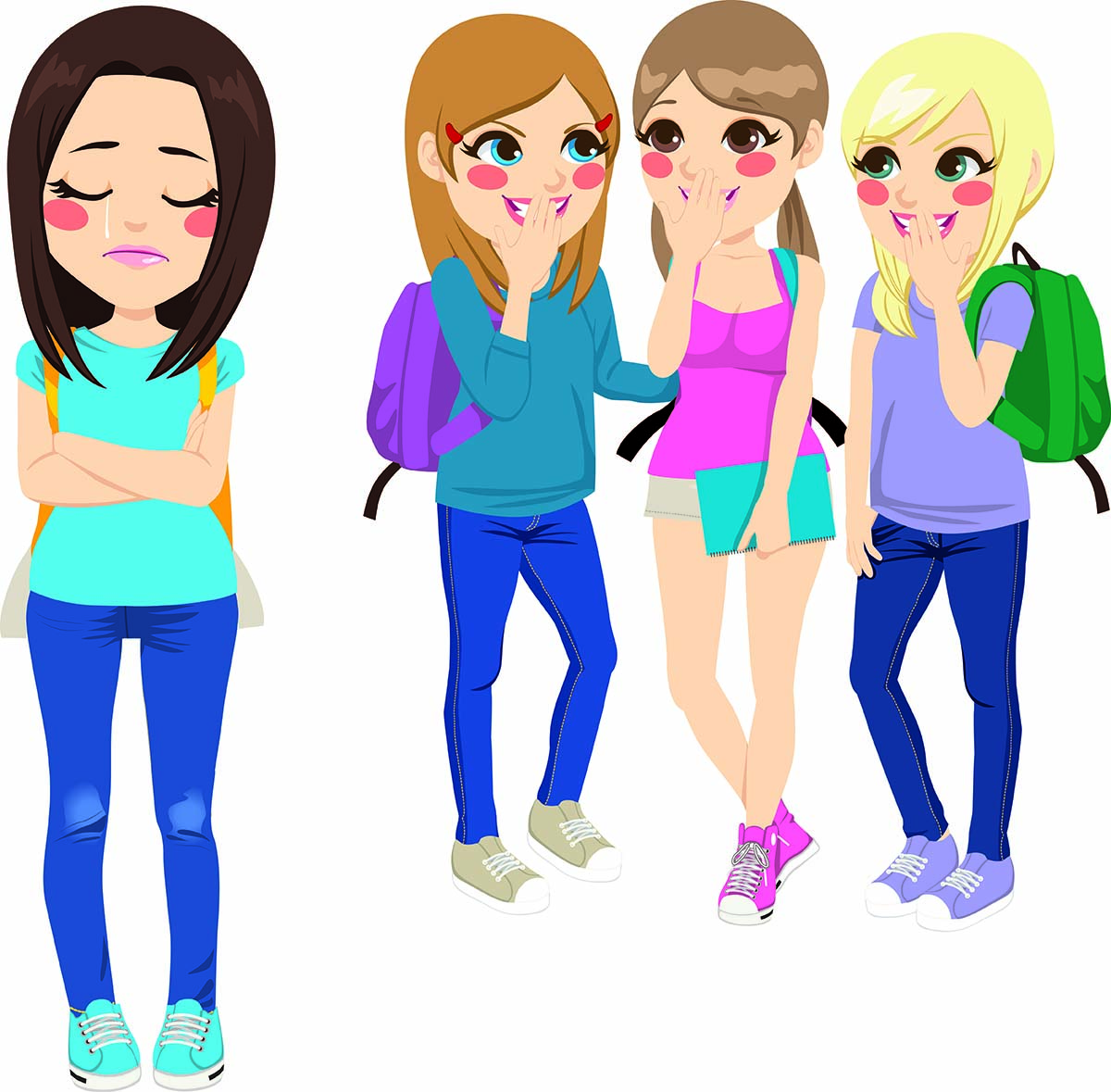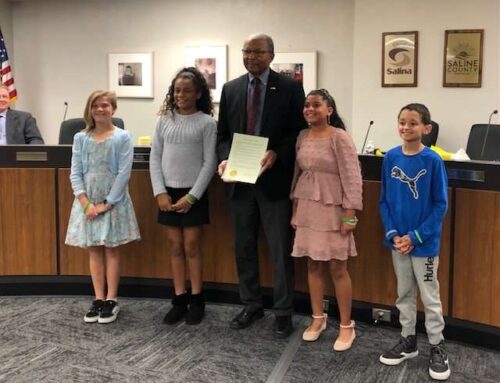This is the first in a series that will discuss and explain the different types of bullying you or your child may fall victim to. We hope this information will help you to recognize the signs of bullying to help not only the kid being bullied, but the one that is causing the bullying. One of the most important things parents and society can do is teach our children that bullying is NOT OK.
Relational bullying, also known as social bullying is a term you may be unfamiliar with. This form is very common among our youth, especially with girls. Youth, especially in junior high and high school want to be liked and accepted, relational bullies use this against them. Their weapon is typically a group of people or their peers. Relational bullies use social groups to hurt their peers and the peer’s standing within a group. It can be hard to detect social bullying and unfortunately because it isn’t overt, it can go on for a long time unnoticed (think of the movie Mean Girls, a movie about social bullying). Oftentimes people will overlook it as simple teasing. Some different types of relational bullying include:
• Exclusion from activities the rest of the group is involved in
• Sharing secrets or breaking confidences they have promised to keep
• Spreading rumors and gossip with different forms of media
• Using techniques like eye rolling around the victim when they speak
• Making fun and teasing them about their appearance
• Whispering about the person and making it look discreet but ensuring the victim can hear what
is being said.
• Saying nasty comments
Social bullies engage in this form of aggression to increase or maintain their social status. There are many factors that drive this type of behavior. Some of these include:
• Excitement – they enjoy the attention they get when gossiping or divulging confidences.
• Peer Pressure – the desire to fit in for some kids overrides the need to be kind and
compassionate. They long to be popular and the fear of not being popular causes them to hurt
others to stay on top.
• Self-esteem issues – many may choose to become bullies to cover up their own inadequacies. They
bully others to make themselves feel better about themselves.
• Learned behavior – some children may be modeling behavior they see at home or on television.
Let’s be honest, women especially are taught to view other women as competition in our society. Instead of building each other up, Hollywood often shows women tearing each other down. For example, watch most reality television shows, what do you see? Are women kind to each other, or do they rip each other apart? I believe this to be a huge issue among our youth. How can we possibly show them kindness and compassion above all when television shows the exact opposite?
If it is often recognized as teasing, how bad can it be? Though often no physical scars can be seen, the emotional ones can be quite severe. These include but are not limited to:
• Depression
• Anxiety
• Low self-esteem
• Feelings of rejection
• Missing school
• Withdrawing from family and friends
• Alcohol and drug use
• Suicidal ideation (thoughts of suicide)
• More likely to attempt or die by suicide
• Anger
• Confusion
• A sudden drop in grades
• Change in behavior
• Long-term emotional trauma
• The feeling of being powerless
• Post-Traumatic Stress Syndrome
• All of these lasting well into adulthood
The seriousness of social bullying cannot be denied. So, what can we do?
• Talk to your children. Help them understand what bullying is. Teach them that it is
unacceptable.
• Listen to your kids. If they come to you with a bullying issue, don’t dismiss it as teasing. If
they are being hurt by it, it isn’t ok. We have been raised that sensitivity is bad. That is
not right. Compassionate and sensitive kids are very much needed in our world. Help them love
who they are, not necessarily who society tells them they need to be.
• Model kindness, compassion, and acceptance in your home. Children mirror what they see. I have
seen acceptance cut bullying off at the knees.
• Let your child know that if they see someone being bullied, it is ok to tell a trusted adult.
If they are scared of retaliation, let them know they can remain anonymous. Make sure the
schools and the trusted adults respect the anonymity.
• If your child has been a victim, counseling may be helpful. The counselor can help them find
ways to constructively work through the pain.
• Tell the school if your child is being bullied. Remember, you are oftentimes the best and only
advocate your child has. If the school won’t listen go to the school board and school
Superintendent.
• If you find your child is the bully, seek help. Listen and determine what is wrong and then
seek professional help such as counseling. Though it is no excuse, that child is often hurting
themselves.
Sources:
Social bullying is complex but together we can stop children from hurting other children.
(Relational Aggression and Why Kids Engage In It, 2017) https://www.verywellfamily.com/relational-aggression-bullying-460498
(Relational Bullying – The Power and Pain of Social Bullying, 2018) https://www.choosehelp.com/topics/bullying/relational-bullying-2013-the-power-and-pain-of-social-bullying







At the very beginning of the school year, the principals should send a letter to each family to be shared with their children regarding bullying. This would include an extensive list of what is considered bullying.
If a child is caught bullying, they receive ONE warning. If they do it again, they are suspended. The number of days they are suspended would be determined by the severity of the bullying. It should never be less than tow days.
The parents AND their children should be obligated to sign the letter stating they understand its contents and its repercussions and then return it to the school.
This type of behaviour has to be nipped in the bud and I think the comment made by Barbara Eddy 23 Sept. is exactly what should be done.
I really think Barbara Eddy is right about that. I agree 100% with that suggestion. Bullying is bad.
Thank you Nureen.